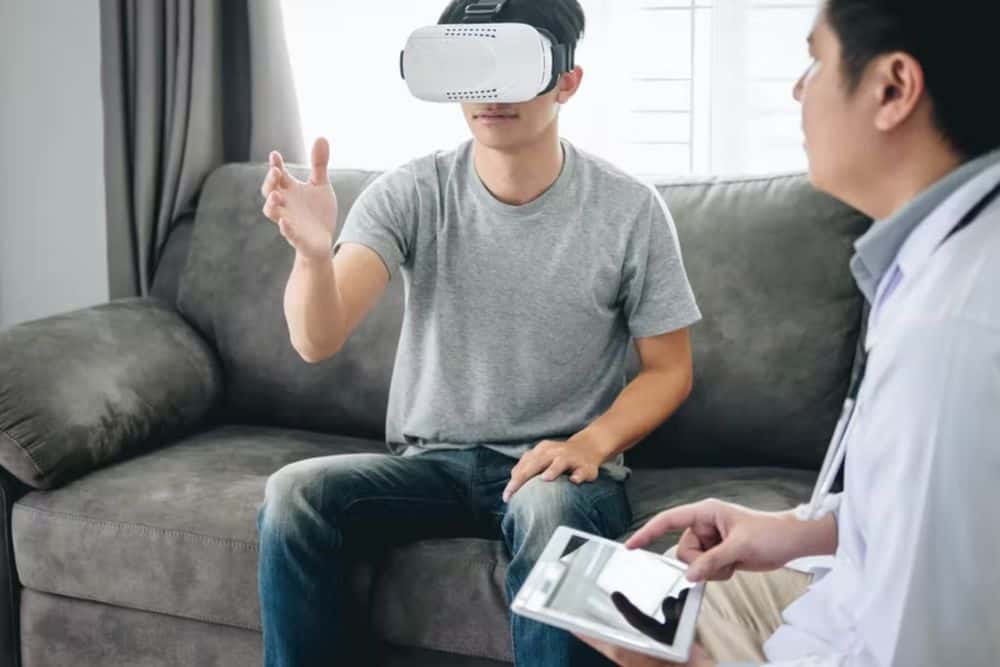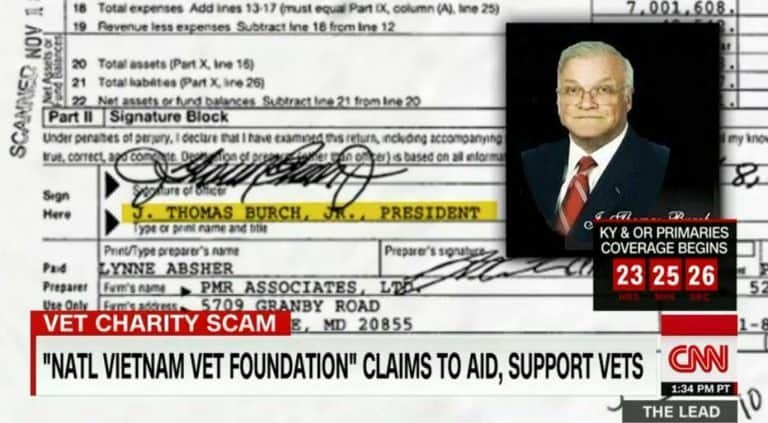Virtual Reality Therapy for PTSD Treatment: A Breakthrough in Veterans’ Healthcare
Southeast Louisiana VA has embraced an innovative approach to address a diverse array of mental and physical health challenges. By incorporating virtual reality (VR) therapy into their repertoire of treatment options, the healthcare system aims to revolutionize care for conditions traditionally managed with medications and intensive inpatient therapies.
What is Virtual Reality (VR) therapy?
VR therapy employs virtual worlds and scenarios as a therapeutic medium. Individuals may wear a headset or use a device to fully immerse themselves in the virtual environment and engage with it.
The versatility of VR enables the simulation of a diverse range of worlds and scenarios, making it a valuable tool for creating situations that are challenging to replicate in real life or that may be too daunting or risky.
Therapists leverage VR to facilitate clients in practicing real-life challenges, revisiting past events, or aiding individuals in confronting their fears within a controlled and secure environment.
While the concept of VR therapy was introduced over 25 years ago in the first published paper by researchers, advancements in technology have propelled a surge of interest in this therapeutic tool. As technology continues to evolve, VR therapy holds the promise of providing innovative and effective solutions for various therapeutic applications.
VR Therapy for Mental Health
Virtual Reality (VR) therapy is branching out from its origins in physical rehabilitation to address mental health issues, notably anxiety and depression. This innovative therapy allows individuals to encounter and manage their traumas in a virtual, yet controlled, environment. By immersing patients in realistic scenarios, the technology aims to help them become desensitized to their triggers, which could lead to recovery and an improved quality of life.
VR therapy stands out for its personalized and targeted treatment options, enabling healthcare professionals to create scenarios specifically designed for individual patients. This approach represents a shift from traditional methods, suggesting a potential reduction in the need for medication and inpatient treatments.
While promising, the effectiveness and application of VR therapy in comparison to conventional treatments are still being explored. As this technology gains traction, its impact on long-term mental health recovery continues to be a subject of research and discussion within the medical community.
VR Therapy for Physical Ailments
Beyond its success in mental health, VR therapy has demonstrated potential in treating physical ailments, including chronic pain and loss of motor skills. Patients can engage in rehabilitative activities designed to improve symptoms while minimizing dependence on expensive or specialized equipment. This holistic approach not only enhances physical recovery but also contributes to an overall improvement in patients’ well-being.
Dr. Scott Mackey, Chief of Virtual and Integrated Care, emphasizes the transformative nature of VR therapy in empowering Veterans on their journey to recovery. He sees it as a pivotal addition to the comprehensive healthcare services offered, with a commitment to making it accessible to as many Veterans as possible.
Community Engagement and Awareness
To showcase the potential benefits of VR therapy, Southeast Louisiana VA recently organized an event in New Orleans. Over 100 Veterans and healthcare providers witnessed live demonstrations of VR technology and heard firsthand accounts from Veterans who have experienced its transformative effects. The testimonials underscored the significance of VR therapy, with one Veteran describing it as not just therapy but a “lifeline.”
Accessibility and Patient Identification
The VA is actively working to identify patients who can benefit from VR therapy. Veterans interested in exploring this groundbreaking treatment can initiate a conversation with their VA healthcare provider to learn more about its potential applications and whether it aligns with their specific needs.
The integration of virtual reality therapy into the Southeast Louisiana VA’s healthcare services marks a significant stride in enhancing the treatment landscape for mental and physical health conditions. As this transformative tool gains traction, it is poised to become a cornerstone in the journey to recovery for Veterans, offering a personalized and immersive approach to healthcare.
FAQs
How does virtual reality therapy work in treating PTSD?
VR therapy immerses patients in realistic scenarios, helping them confront and manage traumas within a controlled environment, aiding in desensitization to anxiety triggers.
In addition to mental health, what other conditions can VR therapy address?
VR therapy has shown promise in treating physical ailments, including chronic pain and loss of motor skills, through rehabilitative activities.
What makes VR therapy a transformative tool for Veterans’ recovery?
According to Dr. Scott Mackey, Chief of Virtual and Integrated Care, VR therapy empowers Veterans on their recovery journey, providing an exciting addition to comprehensive health care services.
How can Veterans access VR therapy at the Southeast Louisiana VA?
Veterans interested in VR therapy can speak with their VA healthcare provider to determine if they are suitable candidates for this innovative treatment.
What was the response to the recent New Orleans event showcasing VR technology?
Over 100 Veterans and healthcare providers attended the event, gaining insights into the potential benefits of VR therapy. Attendees also heard firsthand accounts from Veterans who experienced positive outcomes.





Cheaper and more effective to give prescription narcotics and flights to Thailand for boom boom. Even cheaper for the nation as a whole if they just issue insurance cards and pay attorney fees because God knows they’ll still be sued when they refuse to pay. Thank Tea Party Republicans and the greedy people who they represent for the VHA. Already they should be handing out insurance cards like pancakes. People die!
I have a VR setup, they are awesome.